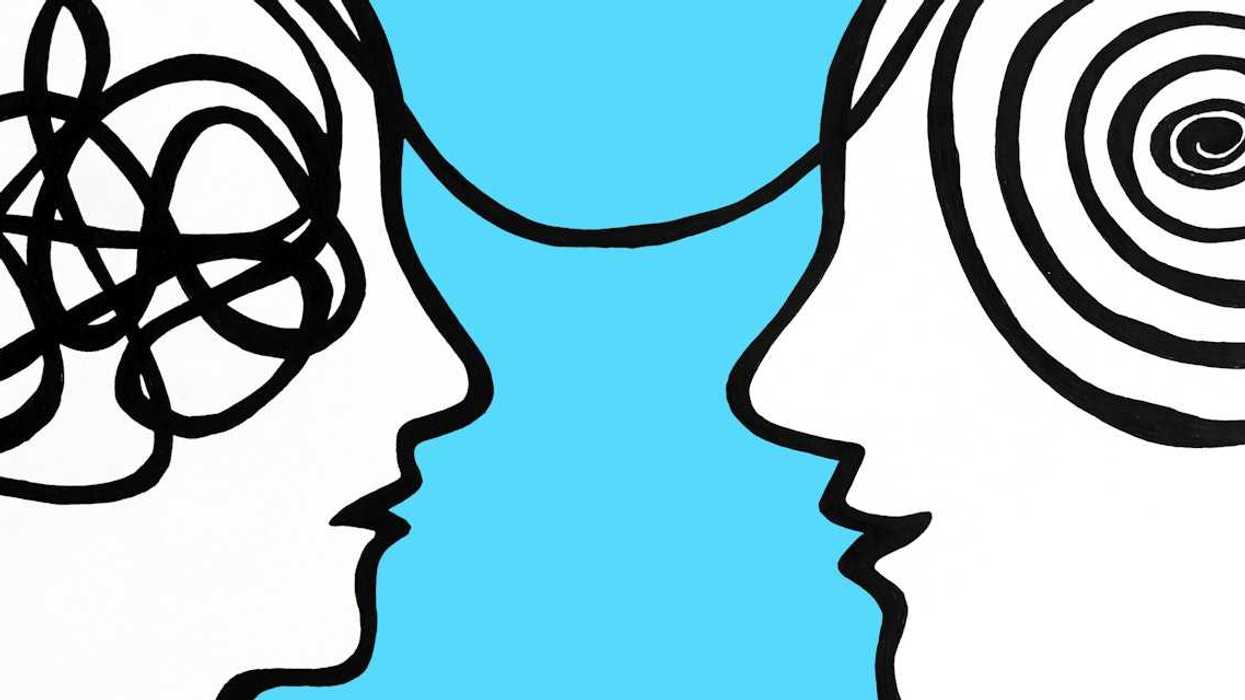If you’ve ever heard someone describe a concert or album as "life-changing," they might not be exaggerating. Listening to and playing music has been repeatedly linked to improved quality of life—data says it can elevate our mood, help us relax, and even treat certain conditions like depression and anxiety. Now, a new study points to another potentially enormous health benefit.
Analyzing data from more than 10,800 people aged 70+, researchers from Monash University in Melbourne, Australia, found that "always listening to music" is linked to a 39% reduction in the risk of dementia compared with "never/rarely/sometimes" listening. It’s also linked to a 17% "lower incidence of cognitive impairment," along with higher scores in "overall cognition and episodic memory (used when recalling everyday events)." Meanwhile, playing an instrument was associated with a 35% "reduction in dementia risk," while regularly engaging in "both music listening and playing" was associated with a 33% "decreased risk of dementia" and a 22% "decreased risk of cognitive impairment."
- YouTube www.youtube.com
Can music "promote cognitive health"?
The study, published in the International Journal of Geriatric Psychiatry, was led by Monash honors student Emma Jaffa and Professor Joanne Ryan. While Jaffa notes in a statement that "causation cannot be established," she says these findings suggest that "music activities may be an accessible strategy for maintaining cognitive health in older adults." Ryan added, “Our study suggests that lifestyle-based interventions, such as listening and/or playing music can promote cognitive health.”
However, the authors report "no significant association" between these activities and "subjective cognitive wellbeing." In an intriguing detail, they emphasize that the associated benefits were strongest among participants with higher education (16 years or more), with "inconsistent results" among those with 12 to 15 years of education.
- YouTube www.youtube.com
The benefits seniors get from music
It’s an exciting update—now you have one more excuse to record that singer-songwriter demo or build out an indulgent vinyl collection. But lowering dementia risk isn’t the only benefit seniors might see from making or listening to music. In the University of Michigan’s National Poll on Healthy Aging from 2024, which surveyed people between ages 50 and 80, 75% of respondents said music helps them relax or relieve stress; 73% said it brings joy; 65% said it improves mental health, mood, or attitude; 60% said it helps motivate or energize; and 31% said it helps keep their minds sharp. According to the published report, "those who said their physical health is fair or poor, and those who say they often feel isolated, were less likely to listen to music every day."
Joel Howell, M.D., Ph.D., a professor of internal medicine at the U-M Medical School, noted the positive benefits of music—from helping treat health issues like depression and anxiety to tapping into a deeper level. “Music has the power to bring joy and meaning to life," he said. "It is woven into the very fabric of existence for all of humankind."
Poll director Jeffrey Kullgren, M.D., M.P.H., M.S. talked about the potential of music in traditional healthcare. “While music doesn’t come up often in older adults’ visits with their usual care providers, perhaps it should,” he said. “The power of music to connect us, improve mood and energy, or even ease pain (like 7% of respondents said it does for them), means it could be a powerful tool.”
- YouTube www.youtube.com


















 Regular exercise and a balanced diet are cornerstones to aging well.
Regular exercise and a balanced diet are cornerstones to aging well.


 Oral Wegovy pills were approved by the Food and Drug Administration in December 2025 and became available for purchase in the U.S. in January 2026.
Oral Wegovy pills were approved by the Food and Drug Administration in December 2025 and became available for purchase in the U.S. in January 2026. Despite the effectiveness of GLP-1 drugs for weight loss, there is still no replacement for healthy lifestyle patterns, including regular exercise.
Despite the effectiveness of GLP-1 drugs for weight loss, there is still no replacement for healthy lifestyle patterns, including regular exercise.


 What foods would you pick without diet culture telling you what to do?
What foods would you pick without diet culture telling you what to do?  Flexibility can help you adapt to – and enjoy – different food situations.
Flexibility can help you adapt to – and enjoy – different food situations.
 Anxious young woman in the rain.Photo credit
Anxious young woman in the rain.Photo credit  Woman takes notes.Photo credit
Woman takes notes.Photo credit